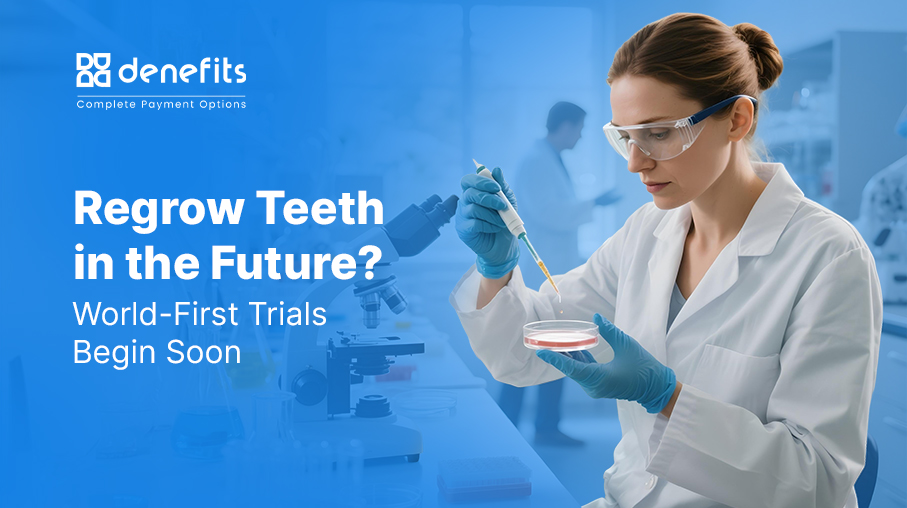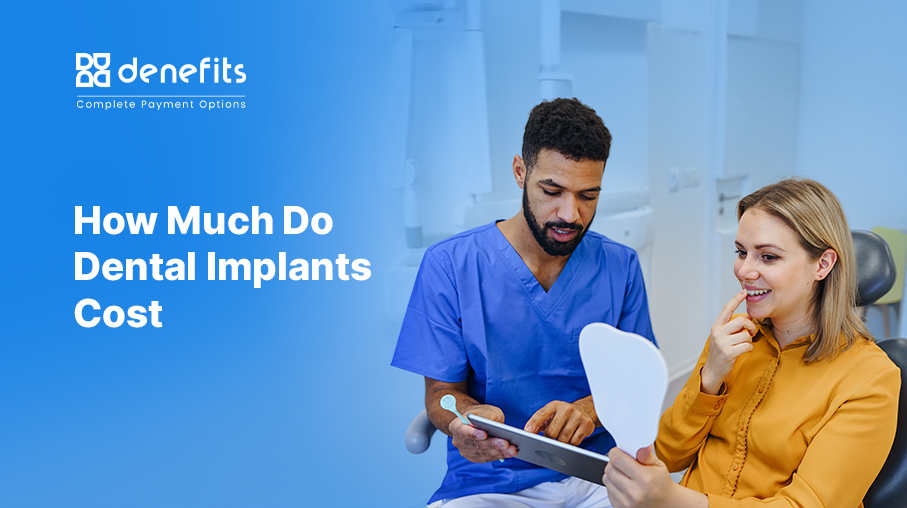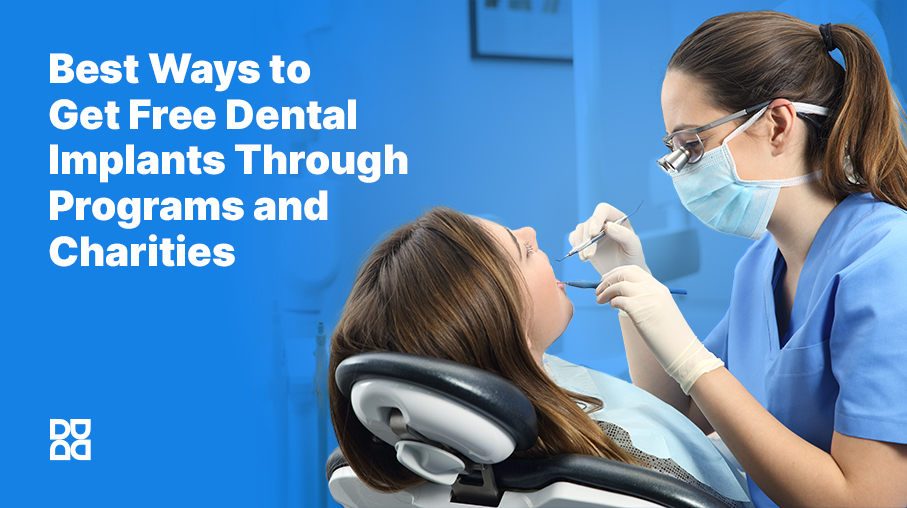
You Can Regrow Teeth — Human Trials Begin in 2025
For years, both people and dental professionals have wondered: Can we regrow teeth, just like when we were kids? Scientists searched for answers, and now, for the first time, the dream of growing new teeth might finally come true.
A team of Japanese scientists has developed a groundbreaking drug that can help people get new teeth now. This is the first medicine of its kind, and it will begin human trials in September 2025.
The research is led by Dr. Katsu Takahashi, head of dentistry at the Medical Research Institute at Kitano Hospital in Osaka, Japan. Dr. Takahashi and his team have been working on this idea for many years. They’ve already tested the drug on animals like mice and ferrets, and the results were amazing. The animals were able to grow new, fully formed teeth.
Now, they’re ready to take the next step. The drug to regrow teeth will be tested on humans. The first group of patients will be those who have a rare condition known as congenital tooth agenesis. These are the people who were born without some of their teeth. The goal is to see if the drug is safe and whether it can help trigger the natural tooth-growing process.
If the trials go well, the medicine could be available to the public by 2030.
So, How Does This Drug To Regrow Teeth Work?
It targets special stem cells in the gums. The same kind that helps teeth grow in babies and adult teeth in young people. Over time, these cells go quiet. But the new medicine "wakes them up", pushing them to start building tooth parts again. For instance, enamel (the hard outer layer) and dentin (the inner supportive layer).
This breakthrough could change the way dentists treat tooth loss forever. Instead of turning to dentures or implants, people might one day grow real teeth again. That too naturally and with the help of their own body.
It's a major step forward in dental care, offering hope to millions of people who have lost teeth due to injury, decay, or medical conditions.
For more information on the research, read here: Kyoto University, Japan
However, Can Teeth Grow Back?
Many people usually think they can grow new teeth now. But the truth is, teeth do not repair themselves.
Let’s understand this through an example—When you get a cut or break a bone, your body activates special repair systems. Therefore, it heals the damage. That’s why a broken bone can grow back together, and a scraped knee can close up and heal over time.
But teeth are different. In adults, the dental stem cells stay dormant. These cells no longer support the natural repair or regrowth of tooth tissue. On top of that, in comparison to bones, teeth don’t have the same kind of blood supply. As a result, the blood flow is less, and nutrients are scarce in the teeth. It makes it nearly impossible to heal.
How To Regrow Teeth: Tooth Regeneration
Teeth regrowth is possible through regenerative dentistry. It focuses on growing back lost or damaged teeth naturally. The goal is to replace treatments like fillings and crowns. Instead of using artificial materials, it helps the body regrow real teeth. This could be a long-lasting solution for tooth loss.
Researchers are working on different methods. These include stem cells, special materials, and gene therapy. All of them help guide or start the tooth-growing process.
When Will Tooth Regeneration Be Available?
Tooth regeneration is one of the most exciting areas of dental research, and while it’s not available to the public just yet, scientists are making great progress.
The first human trials for a tooth-regrowing drug are scheduled to begin in September 2025, led by researchers in Japan. If these trials are successful and the drug is proven to be safe and effective, experts believe it could become available to patients by around 2030.
However, the timeline could vary depending on how the trials go. It must pass several stages of testing before it can be approved for general use. Other methods, like stem cell therapy or gene therapy for growing teeth, are still in earlier research stages.
In short, tooth regeneration is not here yet, but it’s moving closer. Within the next 5 to 10 years, we may see real, natural tooth regrowth become a treatment option in dental clinics.
Although science and technology are moving fast, several innovative methods are being explored to regrow teeth. Some are already in development, while others may soon become available. Here’s a look at the most promising approaches.
Ongoing Research and Methods to Regrow Missing Teeth Naturally
1. Stem Cell Teeth
Stem cells are unique because they can replicate themselves and differentiate into various types of cells. Even when they’re not actively working, they remain alive and ready to respond when needed. Found throughout the body, stem cells play a key role in healing injuries and treating various diseases.
In dentistry, stem cells are proving to be especially helpful. They can repair damaged parts of the tooth, including the soft inner tissue known as the pulp, which is often removed during a root canal. In addition, stem cells may help regenerate the ligaments that support and anchor teeth in the jaw. Scientists have made great progress in this area and are discovering that stem cells can repair not only the inside of teeth but also the bone and gum tissue that support them.
2. Bioengineering
It is a process where new teeth are grown in a lab. Scientists use living cells and safe materials to do this. The goal is to help people grow back their lost teeth using their own cells. Although this method is still being studied, it shows great promise for the future of dental care.
Researchers use two main types of cells. One makes the hard parts of the tooth, like enamel and dentin. The other helps form soft tissue and the roots. These cells are usually taken from gum or tooth tissue. They are then placed on a 3D mold shaped like a tooth.
In the lab, the cells begin to work together. They act like they do in the body during natural tooth growth. Over time, they form a “tooth germ.” This is the early stage of a new tooth. The germ can be placed into the jaw, where it may grow into a real, working tooth.
3. Gene Therapy To Regrow Teeth
It’s a new area in dental research that uses special genes to help the body grow new teeth. This is something the body usually can’t do after childhood.
Teeth stop growing because the genes that form them turn off with age. Gene therapy turns those genes back on. Or it adds new ones. Afterwards, these genes tell the body to start making a tooth again. Scientists use safe viruses or other tools to carry the genes to the right spot. Once there, the genes activate the tooth-forming process. First, dental stem cells grow. Then enamel, dentin, and roots start to form.
Gene therapy may help people who:
- Are born without some teeth (this is called congenital anodontia)
- Lost teeth from an accident or tooth decay
- Want a natural option instead of dentures or implants
4. Mimicking Tooth Development
This method copies how the body grows teeth during childhood. But instead of happening naturally, it’s done in a lab or with medical help.
In kids, teeth grow step by step. This involves signals between different cells, stem cells, and tissue layers. Scientists have studied this process closely. They now use what they’ve learned to copy it. They use stem cells, gene therapy, and 3D molds to rebuild teeth. These tools help recreate the natural tooth-building steps. This method may help people grow real teeth again. Moreover, they won’t need artificial implants or dentures.
How Long Does It Take for Your Teeth To Grow Back?
In children, tooth growth follows a natural timeline. Baby teeth (also called primary teeth) begin to appear at around 6 months of age and are usually all in by age 3.
Once adult teeth are fully grown in, they don’t grow back if they’re lost or damaged, which is why we use fillings, crowns, or implants.
The End Note
There have been exponential advancements in the dental industry, and scientists and researchers are already finding ways to help edentulous people. Moreover, it is going to transform how dentists approach toothlessness. However, it is certain that regrowing teeth really needs a lot more research and trials to finally apply to humans. But we’re sure that it will bring out the best possible results.
If you own a dental practice, it’s your time to offer such innovative solutions to your patients. And if you want to make your services more affordable and within reach to more patients, visit denefits.com to offer flexible payment plans to them.
FAQs
1. Can You Regrow Teeth?
Right now, humans can't naturally regrow teeth after losing them. But new research in regenerative dentistry is showing real promise for future tooth regrowth.
2. What Are the Best Adhesives for Dentures?
The best adhesives for dentures are creams, powders, or strips that provide a strong hold and all-day comfort. Popular choices include Fixodent, Poligrip, and Secure.
3. Is It Possible To Regrow Teeth?
Yes, scientists are exploring ways to regrow teeth using stem cells, gene therapy, and bioengineering. While still in research, this could become a real option in the future.
4. Can a Tooth Grow Back a Third Time?
Normally, teeth grow only twice in a lifetime. A third set doesn't usually grow, but the research is in progress.
5. What Is a Stem Cell Tooth?
Stem cell teeth are new teeth developed from stem cells in a lab or the body. They could one day replace lost teeth naturally, instead of using implants or dentures.
6. How To Regrow Broken Teeth Naturally?
While full tooth regrowth isn’t naturally possible, a healthy diet, proper oral hygiene, and remineralizing treatments can help restore minor damage
7. How Much Does Stem Cell Gum Regeneration Cost?
It may cost around $2,000 to $5,000 per treatment area.
8. Is There Any Drug To Regrow Teeth?
Currently, there’s no approved drug that can fully regrow human teeth. However, researchers are actively working on regenerative medicine and stem cell therapies.
9. Is the Japan Regrow Teeth Solution Safe?
So far, the results in animal studies have been promising and safe, but human clinical trials will determine their full safety and effectiveness.



